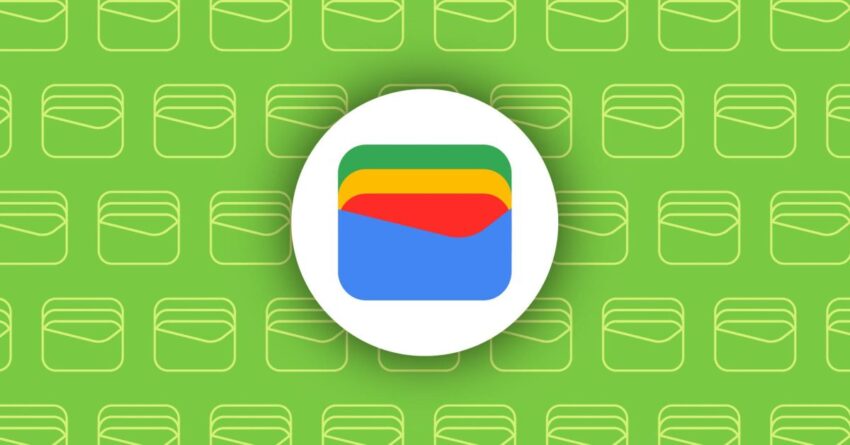
where google wallet state ids are available Google Wallet is expanding its functionality by allowing users to add their driver’s licenses and state IDs to the app on Android devices, a move that is gradually being adopted across various states in the United States.
where google wallet state ids are available
Overview of Google Wallet’s New Feature
Google Wallet has evolved significantly since its inception, transitioning from a simple mobile payment system to a comprehensive digital wallet. The latest enhancement allows users to store their driver’s licenses and state-issued IDs directly within the app. This feature aims to streamline the verification process for various services, including travel, age verification, and identity checks.
As of now, the rollout of this feature is not uniform across the country. Different states are at varying stages of implementation, with some already allowing residents to add their IDs to Google Wallet, while others are still in the planning or testing phases. This gradual rollout reflects the complexities involved in integrating digital identification into existing state systems, as well as the need for compliance with security and privacy regulations.
States Currently Supporting Google Wallet IDs
As of October 2025, several states have begun to support the integration of state IDs into Google Wallet. The following states are among the first to adopt this feature:
- Arizona: Arizona was one of the first states to embrace digital IDs in Google Wallet. Residents can now easily upload their driver’s licenses and state IDs, making it convenient for them to access their identification on the go.
- Colorado: Colorado has also joined the list, allowing users to add their IDs to Google Wallet. This move is part of a broader initiative to modernize state services and improve accessibility for residents.
- Georgia: Georgia is another early adopter, enabling its residents to utilize Google Wallet for their identification needs. The state has emphasized the importance of security and user privacy in this transition.
- Maryland: Maryland has recently rolled out support for Google Wallet IDs, providing residents with a digital alternative to physical identification.
- Ohio: Ohio is in the process of implementing this feature, with plans to allow residents to store their IDs in Google Wallet soon.
Other states are expected to follow suit, but the timeline for their adoption remains uncertain. The integration of digital IDs into Google Wallet represents a significant step forward in the digitization of personal identification, but it also raises questions about security, privacy, and the potential for misuse.
Benefits of Digital IDs in Google Wallet
The introduction of digital IDs in Google Wallet offers several advantages for users and state governments alike:
Convenience
One of the primary benefits of adding IDs to Google Wallet is convenience. Users can access their identification without needing to carry a physical card, which can be especially useful during travel or in situations where quick verification is necessary. With just a few taps on their smartphones, users can present their IDs for age verification, boarding passes, or other identification requirements.
Security
Digital IDs can enhance security compared to traditional physical IDs. Google Wallet employs advanced encryption and security protocols to protect user data. Additionally, users can enable biometric authentication, such as fingerprint or facial recognition, to further secure access to their digital IDs. This added layer of security can help prevent unauthorized access and identity theft.
Reduced Risk of Loss
Carrying a physical ID comes with the risk of losing it or having it stolen. By storing IDs in Google Wallet, users can mitigate this risk. In the event of a lost or stolen phone, users can remotely lock or wipe their device, protecting their sensitive information.
Integration with Other Services
Google Wallet’s digital ID feature can potentially integrate with various services beyond simple identification. For instance, users might be able to link their IDs with travel apps, online services, or even local businesses that require age verification. This integration could streamline processes and enhance user experiences across multiple platforms.
Challenges and Concerns
Despite the benefits, the rollout of digital IDs in Google Wallet is not without challenges and concerns. Stakeholders have raised several issues that need to be addressed as this feature becomes more widely available.
Privacy Concerns
One of the most significant concerns surrounding digital IDs is privacy. Users may worry about how their personal information is stored, shared, and used by third parties. While Google has implemented security measures to protect user data, the potential for data breaches or misuse remains a concern. Transparency in data handling practices will be crucial to gaining user trust.
Regulatory Compliance
States must navigate a complex landscape of regulations when implementing digital IDs. Each state has its own laws governing identification and data privacy, which can complicate the integration process. Ensuring compliance with these regulations while providing a seamless user experience is a significant challenge for both Google and state governments.
Technological Barriers
Not all users may have access to the technology required to utilize digital IDs effectively. While smartphone penetration is high in the U.S., there are still segments of the population that may not have access to the latest devices or reliable internet connectivity. Ensuring that digital IDs are accessible to all residents, regardless of their technological capabilities, will be essential for widespread adoption.
Stakeholder Reactions
The introduction of digital IDs in Google Wallet has elicited a range of reactions from stakeholders, including government officials, privacy advocates, and technology experts.
Government Officials
Many government officials have expressed support for the initiative, highlighting the potential for improved efficiency in identification processes. They argue that digital IDs can help streamline services and reduce the burden on state agencies. However, some officials have also called for caution, emphasizing the need for robust security measures and public education on the use of digital IDs.
Privacy Advocates
Privacy advocates have raised concerns about the implications of digital IDs for personal privacy. They argue that the collection and storage of sensitive information in digital formats can create vulnerabilities that may be exploited. Advocates are calling for clear guidelines and regulations to protect user privacy and ensure that individuals have control over their data.
Technology Experts
Technology experts have generally welcomed the move toward digital IDs, recognizing the potential for innovation and improved user experiences. However, they caution that the implementation must be carefully managed to avoid pitfalls related to security and privacy. Experts emphasize the importance of ongoing collaboration between technology companies, government agencies, and privacy advocates to address these challenges effectively.
Future Implications
The rollout of digital IDs in Google Wallet could have far-reaching implications for various sectors, including travel, retail, and government services. As more states adopt this technology, it may pave the way for a more interconnected and efficient identification system.
Impact on Travel
In the travel industry, digital IDs could revolutionize the way passengers verify their identities at airports and other transportation hubs. With the ability to present a digital ID on a smartphone, travelers may experience faster check-ins and reduced wait times. This could enhance the overall travel experience and improve operational efficiency for airlines and security agencies.
Retail and Age Verification
Retailers could also benefit from the integration of digital IDs. Age verification for age-restricted products, such as alcohol and tobacco, could become more streamlined, reducing the need for physical ID checks. This could lead to a more efficient shopping experience for consumers and less liability for retailers.
Government Services
For government services, digital IDs could simplify processes such as voter registration, access to public services, and more. By providing a secure and convenient way to verify identity, digital IDs could enhance citizen engagement and participation in government programs.
Conclusion
The introduction of digital IDs in Google Wallet represents a significant advancement in the digitization of personal identification. While several states have already adopted this feature, the rollout is still in its early stages, and challenges remain. As more states begin to support digital IDs, it will be crucial to address privacy concerns, ensure regulatory compliance, and enhance accessibility for all users. The future of identification may very well lie in the digital realm, and Google Wallet is at the forefront of this transformation.
Source: Original report
Was this helpful?
Last Modified: October 12, 2025 at 1:43 am
1 views















